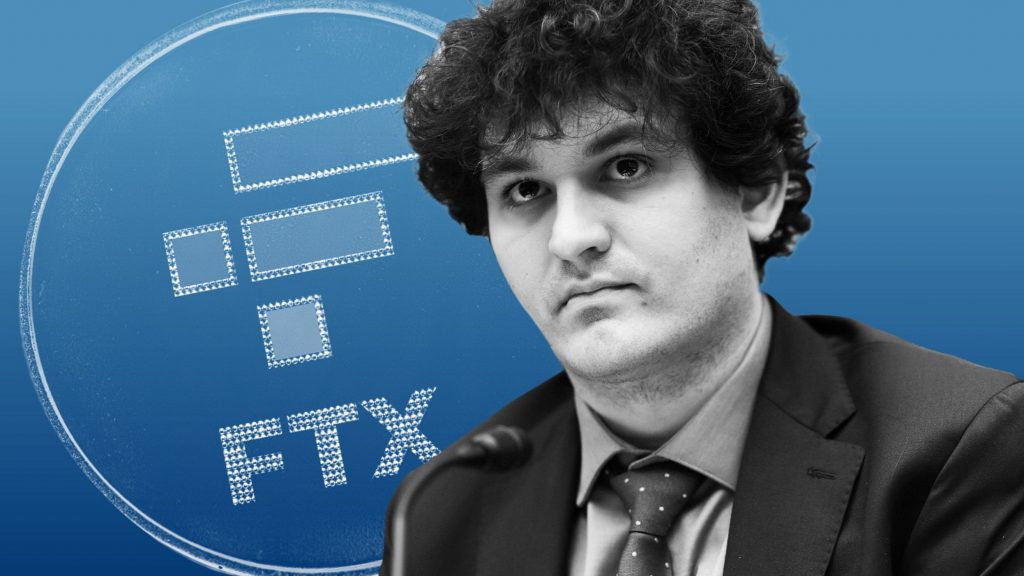An in-depth walkthrough on FTX crisis

Home > Blockchain brains > An in-depth walkthrough on FTX crisis

Table Of Contents
What is FTX?
FTX is one of the world’s biggest cryptocurrency exchanges. It enables customers to trade digital currencies for other traditional money or digital currencies, and vice versa. It is based in the Bahamas and was run by Mr. Bankman-Fried. It has spent millions of dollars lobbying America legislators to institute crypto-friendly regulation.
The firm has built its business on risky trading options that are not legal in the USA. The crypto industry overall has increasingly been the focus of regulatory scrutiny on Capitol Hill and across the planet.
Why did FTX run into trouble?
Traders use FTT for operations like paying fees of transactions. Last year, Changpeng Zhao, the chief executive of Binance, sold his stake in FTX back to Mr. Bankman-Fried, who paid for it partially with FTT tokens.
On 2 Nov, the crypto publication CoinDesk reported on a leaked document that emerged to show that Alameda Research, the hedge fund run by Mr. Bankam-Fried, held an unusually big amount of FTT Tokens. Alameda need for funds to run its trading business was a huge reason Mr. Bankman-Fried created FTX in 2019. But the way the 2 entities were set up meant that issue in one unit shook up the other as crypto prices started to drop in the spring.
Binance announced on 6 Nov, that it would sell its FTT tokens due to recent revelations.” In response, FTTs price plummeted and traders rushed to pull out of FTX, afraid that it would be yet another fallen crypto firm.
FTX scrambled to process requests for withdrawals, which amounted to a guessed $6 billion over 3 days. It seemed to enter a liquidity crunch, meaning it lacked the cash to fulfill requests.
How did Binance intervene?
On 8 Nov, Binance said it had reached an agreement to bail out FTX by purchasing the firm. But, Mr. Zhao added in the announcement, Binance has the discretion to pull out from the deal at any time.
In a concurrent announcement, Mr. Bankman-Fried said the deal would save customers and permit FTX to finish process their withdrawals. He tried to dispel rumors of conflict between Binance and FTX, adding we are in the best of hands.
Will crypto prices keep falling?
Tokens linked with Bankman-Fried plunged as the crisis unfolded, Solana, a Token that promoted and backed, has lost around 50 percent of its market capitalization over the past few years.
But Bitcoin actually rallied on Thursday. That coin is “a remedy to a lot of seedy underpainting of crypto that this full scandal has unearthed,” That is because of how decentralized it is. On the other hand, Bankman-Fried ran a centralized exchange and advocated for more centralization within the industry. The collapse of the centralized exchange has rattled investors.
William Quigley says he expects the crypto market to recover from the surprise in the coming months.
“In the near term crypto prices will fall, but the crypto markets are resilient, “he said in email commentary shared with Money.” Within six months most of the bad impact from the FTX collapse will dissipate.
How will the crypto industry react?
Experts say FTX collapse could take a huge toll on the way people perceive the crypto industry. FTX “was a name that was trusted and recognized by ordinary people, “Hume says.
“Peoples understanding of the crypto ecosystems as a financial infrastructure has truly been weakened more so by the FTX problems than anything we have seen before,” she adds.
That goes for every person, even Wall Street. Quigley says he expects big financial players to move away from crypto, at least for now, given the upheaval of the past year or two.
This spring, the crypto luna and its linked “Stablecoin” terra collapsed to nearly zero. Then, the crypto firms Celsius, Three Arrows and Voyager digital field for bankruptcy.
“The fact that even big firms can collapse overnight is not something big Wall Street investors signed up for,” Quigley says.” They will be more cautious moving around the crypto area.”
Can and will regulators take action?
At this time, it is unclear to what degree FTX.US will be implicated by recent events. Further, it is also unclear as to whether America regulators will have jurisdiction over the distressed entities. Anyway, increased regulatory scrutiny resulting from the FTX collapse remains an important chance. FTX-related entities in the U.S operate a commodity derivates exchange (DCM), a DCO and a swaps exchange facility (SEF), each of which is managed by the CFTC. The CFTC may asses the solvency of these entities, their capability to discharge their regulatory duties, as well as certain representations FTX made in the 2022 spring application to perform direct clearing for customers.
Because some FTX. US market intermediaries and participants, such as brokers (future commission merchants, or FCMs), and swap dealers, are managed by the CFTC and the National Futures Association, the NFA may seek to make sure that FCMs customers assets and future positions are secure and, potentially closed out and fast “posted” transferred to other solvent FCMs. With respect to crypto swap positions, regulatory scrutiny could also target on the FTX SEF with respect to swap dealers positions and, if the swaps are cleared, the FTX DCO capability to maintain a balanced book of in the-money and out-of-the money positions. Volatility of the traded assets will include extra stress to the match derivatives positions, potentially resulting in important margin calls.
FTX is already in the sights of both state and federal regulators. It was reported on Wednesday that the SEC is expanding continue investigations into FTX.US to add potential misconduct at the global FTX platform. The Texas State Securities Board also recently showed in a filling in the Voyager bankruptcy proceeding that it is investigating both FTX and FTX, UK for selling unregistered securities. Both the CFTC and SEC have indicated their powerful interest in assuring that crypto firms are rightly regulated as long as US. Investors might be harmed by their conduct, so FTXs non-U.S place might not ward off U.S regulatory security if U.S persons were harmed or America markets impacted in some way.
Ricky
Growth Strategist at AurpayAs a growth strategist at Aurpay, Ricky is dedicated to removing the friction between traditional commerce and blockchain technology. He helps merchants navigate the complex landscape of Web3 payments, ensuring seamless compliance while executing high-impact marketing campaigns. Beyond his core responsibilities, he is a relentless experimenter, constantly testing new growth tactics and tweaking product UX to maximize conversion rates and user satisfaction

